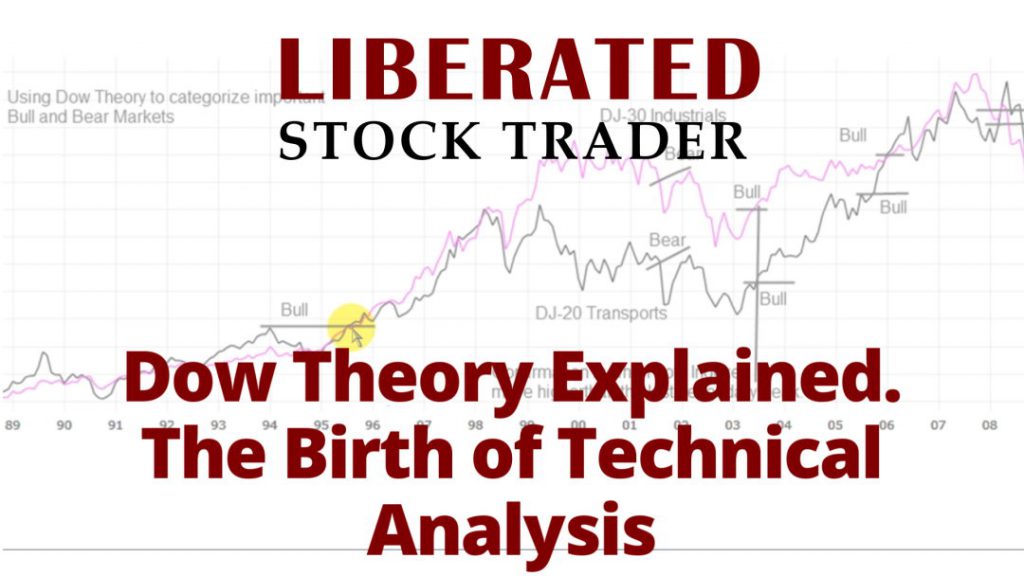Understanding stock trends is what separates amateur investors from professional market analysts. A stock market trend is a mix of price direction and time. Combining time and direction enables you to analyze a stock price trend correctly.
This lesson will help you understand stock market trends like a professional and enable you to make calculated investing decisions.

Stock Market Trend: Direction
The first component in analyzing a stock market trend is understanding the stock’s or index’s direction. There are only three directions a stock price can take.
1. Stock Market Uptrend
A stock market uptrend is when the prices of stocks are consistently going up. This indicates that the economy is doing well and that investors are confident in the future.
An uptrend is defined by the stock price making higher highs and higher lows.
2. Stock Market Downtrend
A downtrend is when a stock or index continues to make lower highs and lower lows. A downtrend in the stock market refers to a general decline in stock prices over a period of time. This could be due to several factors, such as weakening economic conditions, uncertainty about the future, or negative sentiment towards the market.
3. A Consolidation or Sideways Trend in Stocks
A sideways trend or price consolidation is when a stock or index finds equilibrium and investors feel the price is at fair value. This consolidation is seen by observing that the price is moving sideways.
Now that you know there are three trend directions, we look at the three trend timeframes.
Stock Market Trend: Time
A stock market trend is partly the direction but also the time factor. There are three commonly agreed time frames for a trend: short-term, medium-term, and long-term.
Short-term market trend
A short-term stock market trend stretches from days to weeks. Using this reference, we can say that the market is in a short-term uptrend, downtrend, or consolidation.
Medium-term market trend
A medium-term stock market trend lasts from weeks to months. Using this time frame, we can say that the market is in a medium-term uptrend, downtrend, or consolidation.
The chart below shows Microsoft’s three medium-term trends from 2020 to 2021.
Long-term market trend
A long-term stock market trend lasts from months to years. Using this time frame, we can say that the market is in a long-term uptrend, downtrend, or consolidation.
The chart below shows the NASDAQ 100 10-year long-term uptrend.
Combining Time & Direction For Accurate Stock Trend Analysis
Combining the timeframe and the trend direction, you can accurately categorize the current and historical stock market trends. Below, you can see over the last three years, the S&P 500 index has experienced a short-term downtrend (the Covid Crash), a long-term uptrend (the Covid Recovery), and a medium-term down-trend in 2022.
Final Words
So now you know how to categorize the market situation. You can confidently say this is a short-term uptrend, medium-term consolidation, or a long-term bear market down-trend. Not only can you explain it to others, but you can understand it for yourself, which helps you make improved investing decisions.
Learn How Markets Work With 16 Hours of Video Tuition
You want to be a successful stock investor but don’t know where to start.
Learning stock market investing on your own can be overwhelming. There’s so much information out there, and it’s hard to know what’s true and what’s not.
Liberated Stock Trader Pro Investing Course
Our pro investing classes are the perfect way to learn stock investing. You will learn everything you need to know about financial analysis, charts, stock screening, and portfolio building so you can start building wealth today.
★ 16 Hours of Video Lessons + eBook ★
★ Complete Financial Analysis Lessons ★
★ 6 Proven Investing Strategies ★
★ Professional Grade Stock Chart Analysis Classes ★
Further Reading
Learn Dow Theory.


